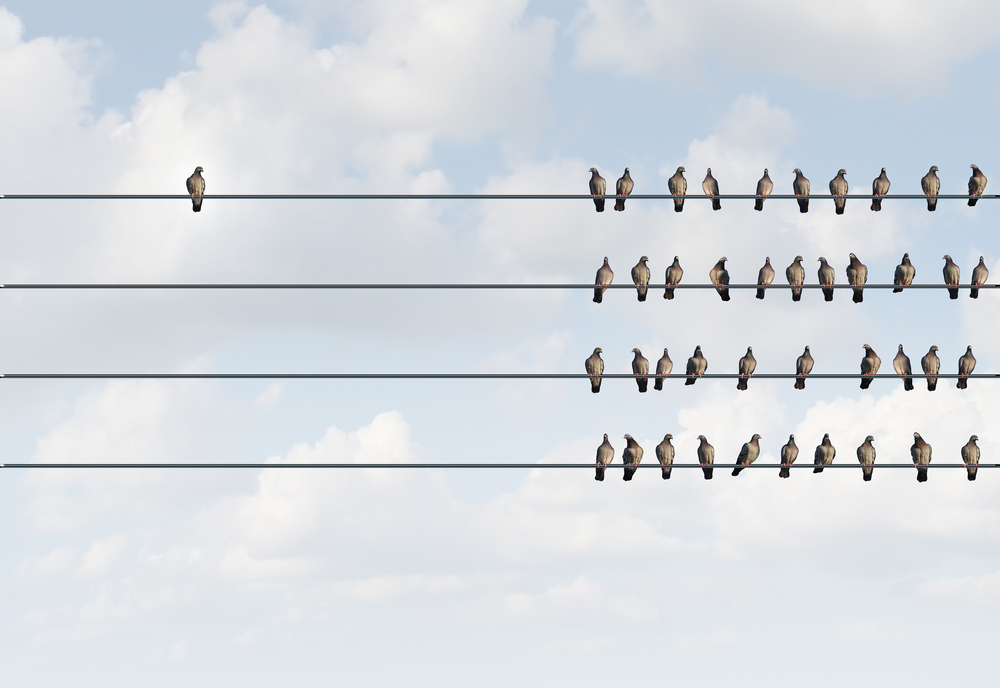According to ADP, 49 per cent of workers in the United Kingdom aged between 25-34 have faced some form of discrimination in the workplace.
That’s almost one in two people – and exactly why people can’t pretend that discrimination doesn’t exist.
This article intends to define discrimination; the forms it can take, the effects it can have and how you can combat it as an employer or employee.
Defining discrimination
To effectively combat discrimination, you need to have a thorough understanding of what it is so you know what to look out for. Ultimately, it is the act of someone being treated unfairly because of certain characteristics which they possess. However, this can take two different forms.
Direct discrimination is when someone is discriminated personally, with results that affect them specifically. Indirect discrimination is when a rule or policy is in place which puts people of a certain characteristic at a disadvantage and isn’t specific to one employee.
These are the two forms which it can take, however, there are many different reasons why people are discriminated against. Below are a few examples which everyone should consider, as you may be guilty of them without even realising:
- Gender discrimination
Your office may suffer from this if… certain questions are asked of women in the interview process that men aren’t asked, or if there is a difference in pay between the two genders for similar roles.
- Sexual orientation discrimination
Your office may suffer from this if… inappropriate questions are asked about a same-gender relationship, or if a homosexual man is referred to by the feminine version of his name.
- Disability discrimination
Your office may suffer from this if… the building is inaccessible for those in wheelchairs, or employees have to take absences for their disability and are punished for it.
- Pregnancy discrimination
Your office may suffer from this if… a pregnant woman isn’t hired solely for the fact they are carrying a child, or women aren’t given appropriate space for them to pump breast milk.
The price of discrimination
No one should need an additional motive to care about discrimination when they know the impact it can have on a victim. However, reports from all over the world have proven that there are also large financial repercussions.
In a landmark study which looked at the payment practices of 500+ workplaces in the United Kingdom, it was found that the GDP would be approximately seven per cent higher if discrimination was eliminated because of the output loss that would be recovered.
It isn’t uncommon for someone to leave a company as a result of discrimination too, which has its own costs. According to a report from SHRM, it costs companies on average just over £3,000 per hire – a process which can take 42 days on average.
How you can fight it
Education and understanding are the two main tools in combatting discrimination. A human resources department will help with this, but smaller companies may not have the luxury of a whole HR team. In this case, it is on the people in power to learn and implement.
On top of this, building a racially and ethnically diverse team will help, along with a focus on making sure employees are happy in their role. This comfort will not only make them enjoy working in the business more but also make them more willing to speak out if they are discriminated against – a key factor in cutting discrimination out.
Speaking of diversity, a report from Onrec also revealed that the most diverse workforces are “12 percentage points more likely to financially outperform their industry average than the least diverse firms”.
It’s just as important to foster an atmosphere where people will feel comfortable coming forward when there is something to discuss or report. One person cannot end discrimination for the entire planet. However, one person can make a difference to their own work environment and that’s what everyone should seek to do.
About the author
Jack Bird is a writer for MHHP Law, who believes that the potential of a team can only be unlocked when the workplace supports and understands them. This perspective, combined with his love of writing, has seen him write about office culture and discrimination across the internet.
WeAreTheCity covers the latest female centric news stories from around the world, focusing on women in business, careers and current affairs. You can find all the latest gender news here.
Don’t forget, you can also follow us via our social media channels for the latest up-to-date gender news. Click to follow us on Twitter, Facebook, Instagram, and YouTube.









